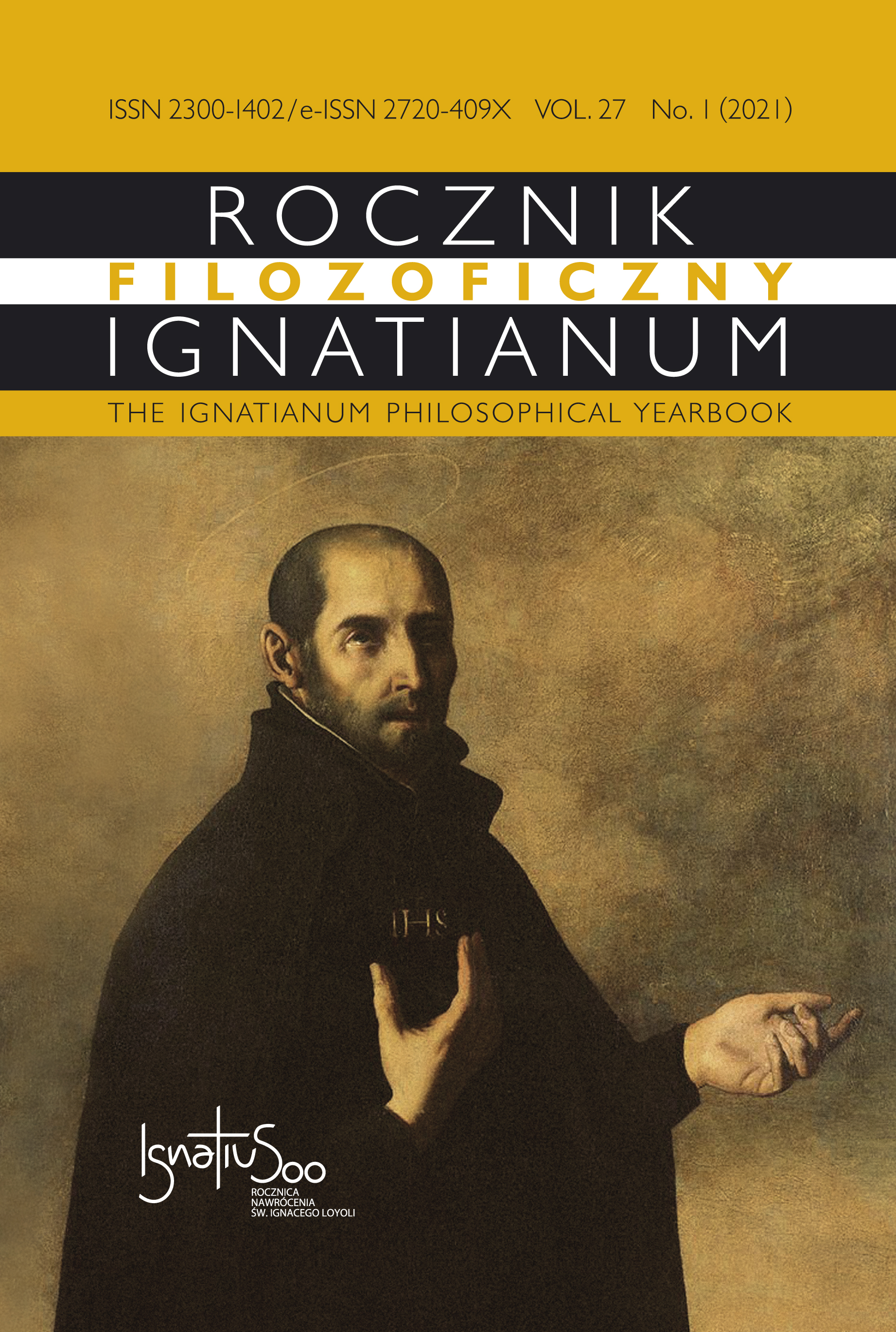Ontology by Marcin Śmiglecki SJ
Abstract
In this article, the ontological concepts of Marcin Śmiglecki (1563-1618), an outstanding theologian and philosopher from the Jesuit Order are presented. His most important work is Logica, which had several editions in England. Śmiglecki’s original thesis that every real being is entitled to two ways of existence, as actual and potential being, is particularly analyzed. For this purpose, I refer to the statements in the aforementioned monograph of the Polish Jesuit, as well as to the works of other scholars of his philosophical achievements. In addition to a positive lecture in the study of his philosophical views, I also conduct an analysis thereof. The Jesuit philosopher’s thesis is justified by his logical analysis of the concept of the given entity. For him, the criterion of logical consistency takes the form of an ontological one. Consistency or contradiction is expressed, in his view, through the so-called Essentialia, which we can translate as “inner qualities” of the concept of the given entity. Śmiglecki’s adoption of the criterion of logical consistency with its ontological interpretation is a very original idea, for according to the Polish Jesuit, a contradiction in the logical order indicates the impossibility of existence in the real order. Thus, by the same token, coherence in logical order justifies the thesis of the existence of an ontological order. As we can see, Polish Jesuit formulated an important conclusion: it is possible to move from the logical order of the intellect to the order of the empirical world. Śmiglecki’s thesis is strengthened by the fact that Leibniz spoke highly of his position and Christian Wolff, an eminent philosopher of the modern era, expressed similar conclusions about the existence of real being. However, the aspect of the similarity between Śmiglecki’s and the position of other philosophers requires additional research. The article also analyses the notions of mind and substance in the output of the Polish Jesuit, which constituted the main areas of philosophical inquiry in Śmiglecki’s epoch. An important conclusion is that it is not only the issues relevant to seventeenth-century philosophy that appear in his work, but the originality of his proposals in understanding them and the clarity of his interpretation.
Copyright (c) 2021 Jesuit University Ignatianum in Krakow

This work is licensed under a Creative Commons Attribution-NoDerivatives 4.0 International License.
The Yearbook only accepts materials for publication that are free of all conflicts of interest, and that in no way involve conflicts over authorship, copyright, etc. The Editors will take action against any cases of plagiarizing, ghostwriting1, guest/honorary authorship2, etc. Where co-authored work is concerned, the Author listed first is expected to take responsibility for the submission, and is required to make clear the contributions of all of the Co-Authors involved. In the event of the publication owing its existence to funding dedicated to this purpose, this fact should be made clear: e.g. in any note of thanks/acknowledgement, or in a footnote, etc. Explicit notification should be given of any form of reprinting, with the appropriate evidence of permission to publish being furnished as required. Any impropriety on the part of Authors/Reviewers risks exposing them to appropriate responses from the relevant institutions.
______
1 This term refers to instances of a person who has made an essential contribution being omitted from the list of authors, or from notes conveying gratitude and/or acknowledgement.
2 This occurs when a person who has made either an insignificant contribution or no contribution at all nevertheless appears on the list of authors.





